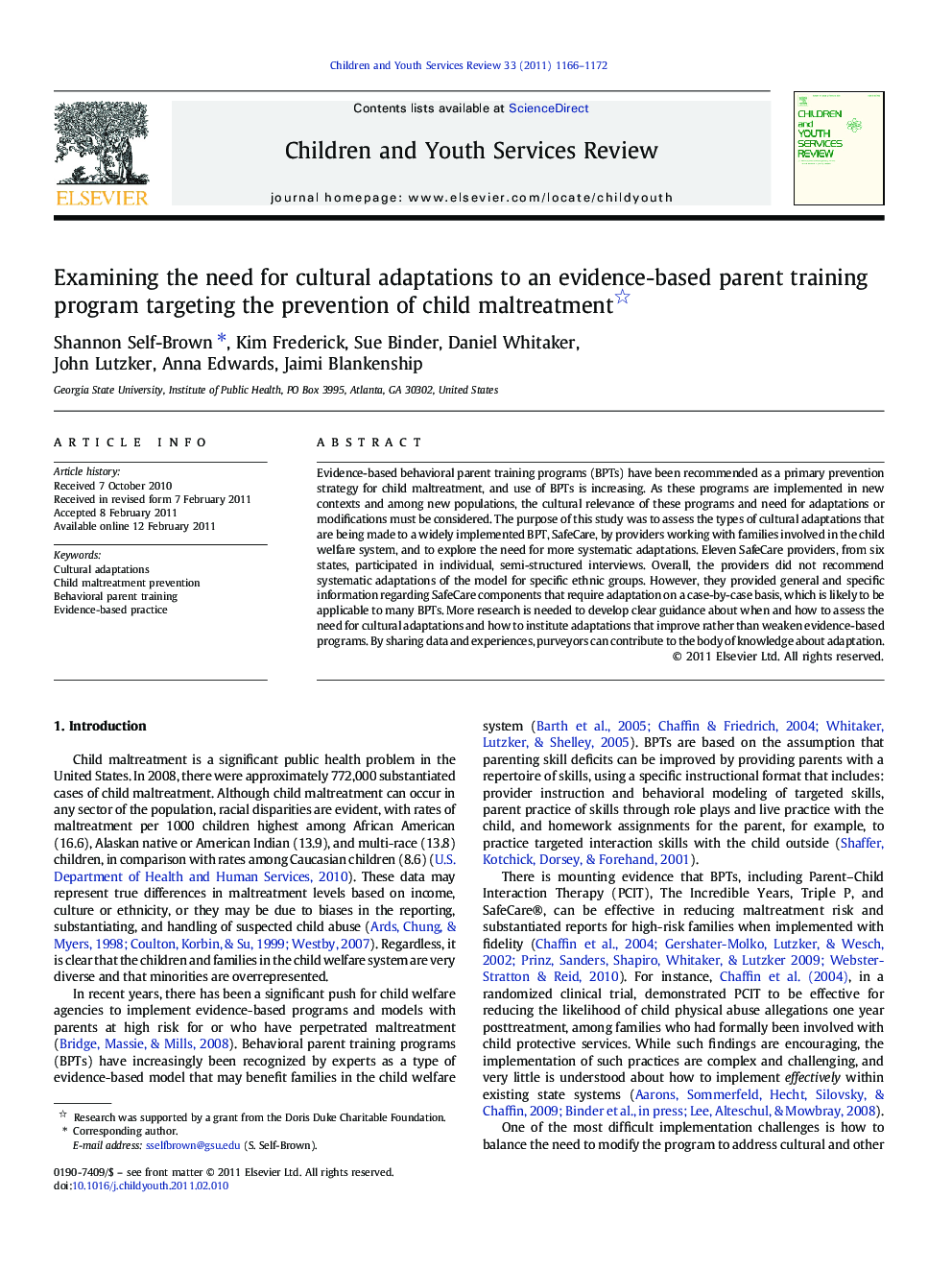| Article ID | Journal | Published Year | Pages | File Type |
|---|---|---|---|---|
| 346863 | Children and Youth Services Review | 2011 | 7 Pages |
Evidence-based behavioral parent training programs (BPTs) have been recommended as a primary prevention strategy for child maltreatment, and use of BPTs is increasing. As these programs are implemented in new contexts and among new populations, the cultural relevance of these programs and need for adaptations or modifications must be considered. The purpose of this study was to assess the types of cultural adaptations that are being made to a widely implemented BPT, SafeCare, by providers working with families involved in the child welfare system, and to explore the need for more systematic adaptations. Eleven SafeCare providers, from six states, participated in individual, semi-structured interviews. Overall, the providers did not recommend systematic adaptations of the model for specific ethnic groups. However, they provided general and specific information regarding SafeCare components that require adaptation on a case-by-case basis, which is likely to be applicable to many BPTs. More research is needed to develop clear guidance about when and how to assess the need for cultural adaptations and how to institute adaptations that improve rather than weaken evidence-based programs. By sharing data and experiences, purveyors can contribute to the body of knowledge about adaptation.
Research highlights► Evidence-based behavioral parent training programs (BPTs) have been recommended as a primary prevention strategy for child maltreatment, and use of BPTs is increasing. ► The purposes of this study were to assess the types of cultural adaptations that are being made to a widely implemented BPT, SafeCare, by providers working with families involved in the child welfare system, and to explore the need for more systematic adaptations. ► Eleven SafeCare providers, from six states, participated in individual, semi-structured interviews. ► Overall, the providers did not recommend systematic adaptations of the SafeCare model for specific ethnic groups. ► Providers did offer general and specific information regarding SafeCare components that require adaptation on a case-by-case, which is likely to be applicable to many BPTs. ► More research is needed to develop clear guidance about when and how to assess the need for cultural adaptations and how to institute adaptations that improve rather than weaken evidence-based programs.
